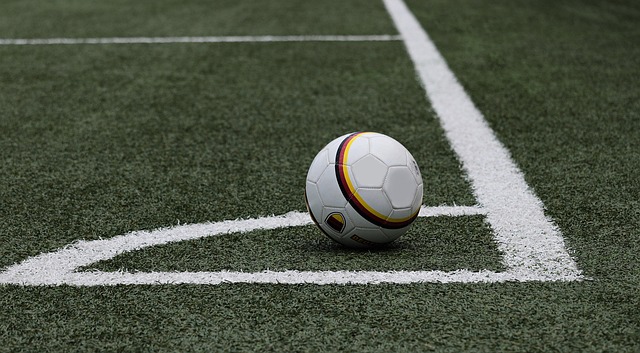The Foundation: Discipline Over Hype
Raw talent might get you noticed, but it won’t keep you in the game. Natural ability runs out of steam fast without structure behind it. The truth? Most people don’t need more talent—they need more reps.
The athletes who keep showing up, day after day, gain the edge. Not because of some secret hack, but because their consistency compounds. It’s boring, sure. But boring works. Strength, speed, precision—all of it sharpens with repetition, not random one-off bursts of brilliance.
What makes that consistency possible? Routines you can actually stick to. Not the flashy, unrealistic kind—but grounded systems that fit your life and goals. It’s about setting up your training so it doesn’t rely on willpower. The goal isn’t to feel hyped—it’s to build habits that run even when your motivation tanks.
In the end, greatness lives in the small, consistent actions. Natural talent fades. Discipline lasts.
Tip 1: Prioritize Recovery Like You Train
You can go all-in on the grind, but if recovery is an afterthought, progress stalls—fast. Sleep isn’t just rest; it’s the engine room where your body actually rebuilds. Aim for 7–9 hours of quality shut-eye. No compromise. No badge of honor for pushing through sleep debt. Athletes who recover well outperform those who train more but rest poorly. Every time.
Then there’s active recovery. We’re talking mobility work, stretching, and proper cooldowns—not just collapsing on the gym floor. Five to ten minutes post-session can keep your joints moving well, cut down soreness, and keep you in the game longer. Treat it like training, because it is.
And nutrition? It’s not just fuel for effort—it’s raw material for repair. After workouts, your body’s open for business. Skip the protein and carbs, and you’re skipping gains. Hydration matters too. Don’t wait until you’re thirsty. Rebuilding starts as soon as the last rep ends.
Train hard—but recover harder. That’s how the pros make it look easy.
Tip 2: Train Smarter, Not Just Harder
Training harder doesn’t always lead to better performance. In fact, unstructured intensity often leads to plateau—or worse, injury. The key is to train with strategy, not just effort.
Make Periodization Your Secret Weapon
One of the most overlooked strategies by amateur and even intermediate athletes is periodization—a structured approach that cycles different phases of training to build toward peak performance and recovery.
- Why it matters: Prevents overtraining, maximizes adaptations
- How it works: Alternates between volume, intensity, and focus across weeks or months
- The result: More consistent progress without burning out
Balance Your Physical Qualities
Depending on your sport, you’ll need a unique combination of physical abilities. Don’t train everything at full speed all the time—instead, play the long game.
- Strength: Foundational for power, agility, and injury prevention
- Speed: Crucial for explosiveness and game-day advantage
- Endurance: Supports overall efficiency and late-game focus
Design training blocks or sessions to emphasize the right element at the right time, while maintaining the others.
Know When to Push—and When to Pull Back
Understanding how and when to push your limits is what separates elite athletes from overtrained ones. Listening to your body isn’t weakness—it’s intelligence.
- Signs you need to push: You feel well-rested, mentally focused, and your performance indicators are climbing
- Signs to back off: Persistent fatigue, nagging soreness, mood dips, or falling performance
Remember: Gains happen during recovery. Your job is to create the conditions for growth—not to grind endlessly.
Tip 3: Sharpen Mental Toughness
Physical talent gets you in the game. Mental grit keeps you in it. The biggest performance divider between elite and average athletes? Mindset. And no, it’s not about motivational hype or screaming in the mirror.
The elite simplify their thinking under pressure. They focus on cues: breath, feel, position. One or two performance anchors they can control in real time. Breathing drills—like boxed or tactical breathing—help regulate heart rate and reset focus between plays, reps, or moments. Visualization isn’t fluff, either. It’s quiet reps in your head, rehearsing movements and outcomes so your body knows the path before it starts moving.
Pressure isn’t something to avoid. It’s something to train with. Put yourself in uncomfortable scenarios during practice. Create stress, simulate fatigue, disrupt routines. Then practice locking back into your task focus. That’s how game-day nerves turn into calm execution.
For a deeper dive on handling heat when it matters most, check out Adapting to Game-Time Pressure – Strategies for Athletes.
Tip 4: Technical Skills Need Constant Refinement
Why Technique Matters—Always
Even the most athletic individuals can lose their edge without solid technical foundations. No matter how fit or fast you are, your mechanics, form, and execution will either create your competitive advantage—or expose your weak points.
- Precision often beats raw strength or speed
- Consistent skill work is essential in both practice and off-seasons
- Mastery comes from repetition, revision, and response under pressure
Small Tweaks, Big Impact
Don’t underestimate the power of tiny refinements:
- A minor adjustment in foot placement can change sprint speed
- Hand positioning may affect control, accuracy, or reaction time
- Better body alignment reduces energy waste and prevents injury
Seemingly small technical changes can add up to massive performance shifts over time.
Build a Feedback Loop
Getting better demands honest, consistent evaluation. Build a system of checks that includes:
- Video analysis: Watch your own movements frame by frame to catch habits you don’t notice in the moment
- Coach input: One-on-one evaluations improve focus and accountability
- Peer review: Teammates often see things from your blind spots—use their perspective
Practice Under Pressure
Technique should hold up when the heat is on. That’s where your training should evolve. Focus on drills that simulate game-day intensity:
- Add time constraints to skill reps
- Introduce unpredictability (e.g., reaction drills, variable resistance)
- Blend fatigue into training so execution doesn’t falter when you’re tired
The goal isn’t just performing a skill—it’s performing it well when it really counts.
Keep sharpening your edge. The best athletes never stop refining the basics.
Tip 5: Fuel for Performance, Not Just Looks
If you’re still thinking of food as reward or punishment, you’re behind. Nutrition is gear—it either helps you perform or it doesn’t. Pre-training, keep it simple: fast-digesting carbs (like fruit or oats) with a touch of protein 30–60 minutes before. You don’t need a meal, just fuel. Post-training, the goal shifts to recovery. That’s where a quality protein source teams up with carbs to kickstart muscle repair and replenish glycogen. Think lean meat and rice, a smoothie with whey and a banana, or eggs and toast. Basic, effective, done.
Hydration is still massively misunderstood. Guzzling water all day isn’t the flex you think it is. Yes, most people are low-key dehydrated, but volume doesn’t fix absorption. Add electrolytes—especially sodium—if you’re training hard or sweating a lot. And no, you don’t need fancy sports drinks unless you’re putting in serious hours. For most, a pinch of salt in water or diluted juice does the trick.
Now to supplements. Creatine, protein powder, and caffeine? Backed by science, worth your time. The rest? Mostly hype. Fat burners, detox teas, and anything claiming to hack genetics—skip. If a product sounds like a shortcut, it probably is. Use supplements to fill gaps, not pretend you don’t need sleep or diet discipline.
Fuel smart, hydrate well, and spend less time chasing magic—and more time locking in results.
Final Word: Stack Small Wins
Athletic excellence isn’t a burst. It’s not about one big game, one perfect lift, or one heroic effort. It’s accumulation—the quiet dailies that compound over weeks, months, and years.
The best athletes don’t just train. They recover with intent, eat like it matters, and sleep like it’s their full-time job. They pay attention to the mental game—not just in high-stakes moments, but when no one’s looking. That focus isn’t flashy; it’s effective.
If there’s a secret, it’s this: get brilliant at the basics. Build habits you don’t have to think about. Prioritize quality over impressive. Keep showing up, even when it’s not convenient. Stack enough small wins, and it turns into something hard to beat.




